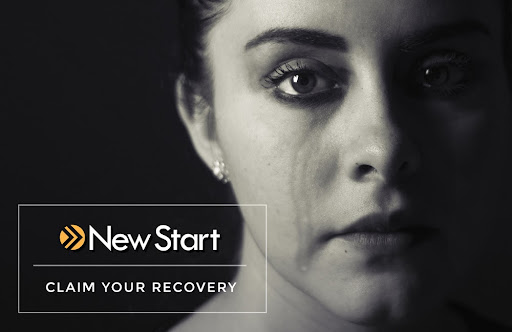Trauma leads to substance abuse for many survivors. We promise, you’re not alone in this.
“Trauma recovery.”
It sounds like such a clinical term. But New Start’s care staff knows that addressing psychological scars isn’t so objective. Each case is unique, and a person’s individual reaction to horrors like abuse, rape, and other forms of violence cannot be solved by a blanket mental health approach.

Why Trauma Leads to Addiction
PHYSICAL ABUSE / ASSAULT
EMOTIONAL ABUSE
SEXUAL ABUSE / ASSAULT
MILITARY COMBAT / WITNESSING VIOLENCE
SERIOUS ACCIDENTS
SEVERE NEGLECT
Two Birds, One Stone
Trauma and addiction are intimately intertwined. Daily therapy (in both individual and group settings) is the best way to address trauma head-on. Our licensed psychologists sit with clients individually and outline the ways past traumatic experiences are driving their current addiction problem. Through this method, New Start’s holistic recovery program addresses both PTSD and addiction at the same time.
Defeat the Stigma. Get help and live your life free of addiction.
TALK TO A COUNSELOR 855.741.0633
Cognitive Behavioral Therapy
THE MATRIX MODEL
Granted, residential care is just a phase in recovery. The Matrix Model is all about planning for life beyond treatment.
Key Concepts Taught:
RELAPSE PREVENTION
FAMILY EDUCATION
SOCIAL SUPPORT
URINE TESTING
Wellness Recovery Action Plan (W.R.A.P)
Key Concepts Taught:
DAILY MAINTENANCE PLANNING
CRISIS PLANNING
Since addicts need ways to “retrain” their brains, psychologists reach out, engage, and demonstrate positive coping strategies that trauma survivors can utilize every day. CBT usually includes plans that preemptively outline emergency response and relapse prevention tools. This “toolbox” helps recovering addicts circumvent their cravings and defect to healthier coping strategies.

